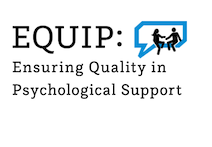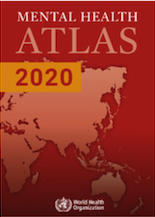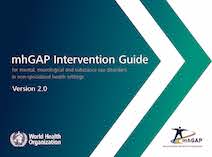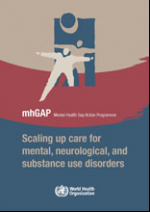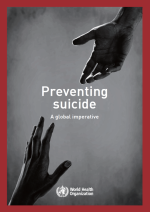资源
EQUIP: Ensuring Quality in Psychological Support
To ensure quality in training and supervision, WHO and UNICEF jointly developed the Ensuring Quality in Psychological Support (EQUIP) platform. EQUIP guides trainers and supervisors on how to change their existing programmes into competency-based approaches. A competency-based approach uses role plays and assessments of skills to ensure that helpers not only have the knowledge but also the skills needed to deliver quality support.
EQUIP enhances training and supervision for improved mental health and psychosocial support services. Prior to the COVID-19 pandemic, EQUIP was delivered by in-person training. The EQUIP digital platform launched in March 2022, containing guidance and e-learning tools to assess and monitor competencies in helpers to enhance training and supervision and build safe, effective, and high-quality services.
EQUIP platform can be accessed for free (click here) and is currently available in English, Spanish, Arabic, and Nepali.
World Health Organization Mental Health Atlas 2020
The Mental Health Atlas, released every three years, is a compilation of data provided by countries around the world on mental health policies, legislation, financing, human resources, availability and utilization of services and data collection systems. It serves as a guide for countries for the development and planning of mental health services. The Mental Health Atlas 2020 includes information and data on the progress made towards achieving mental health targets for 2020 set by the global health community and included in WHO’s Comprehensive Mental Health Action Plan. It also includes data on newly-added indicators on service coverage, mental health integration into primary health care, preparedness for the provision of mental health and psychosocial support in emergencies and research on mental health, as well as new targets for 2030.
mhGAP Intervention Guide for Mental, Neurological and Substance Use Disorders in Non-specialized Health Settings
The mhGAP Intervention Guide (mhGAP-IG) for mental, neurological and substance use disorders for non-specialist health settings, is a technical tool developed by WHO to assist in implementation of mhGAP. The Intervention Guide has been developed through a systematic review of evidence followed by an international consultative and participatory process.
The mhGAP-IG consists of modules, organized by individual priority conditions, that are a tool for clinical decision-making and management. The priority conditions included are: Depression, Psychoses, Epilepsy, Child & Adolescent Mental and Behavioural Disorders, Dmentia, Disorders due to Substance Use, Self-harm/Suicide, and other significant mental health complaints. Each module presents protocols for assessment, management, and follow up for the respective condition.
The mhGAP-IG is a model guide and has been developed for use by health care providers working in non-specialized health care settings after adaptation for national and local needs.
The mhGAP-IG is available in Arabic, French, Italian, Marathi, Russian, Spanish, Thai, and Ukrainian.
mhGAP Mental Health Gap Action Programme: Scaling up Care for Mental, Neurological, and Substance Use Disorders
Mental, neurological and substance use disorders are highly prevalent and burdensome globally. The gap between what is urgently needed and what is available to reduce the burden is still very wide.
WHO recognizes the need for action to reduce the burden, and to enhance the capacity of Member States to respond to this growing challenge. mhGAP is WHO’s action plan to scale up services for mental, neurological and substance use disorders for countries, especially with low and lower-middle incomes. The priority conditions addressed by mhGAP are: depression, schizophrenia and other psychotic disorders, suicide, epilepsy, dementia, disorders due to use of alcohol, disorders due to use of illicit drugs, and mental disorders in children. The mhGAP package consists of interventions for prevention and management for each of these priority conditions.
Successful scaling up is the joint responsibility of governments, health professionals, civil society, communities and families, with support from the international community. The essence of mhGAP is building partnerships for collective action.
预防自杀:一项全球要务
全世界每40秒就有一人死于自杀在全球范围进行协商,并对数据和证据进行系统评价,也包括对合作伙伴和利益相关方提供的数据进行系统评价,鼓励和支持各国通过公共卫生途径发展及加强预防自杀的措施和策略。,而自杀是可以预防的。《预防自杀:一项全球要务》是世卫组织发布的首份此类报告。其目标是将自杀预防提升至全球公共卫生和公共政策议题的优先考虑之位,并提升人们的认识,使其认识到自杀是公共卫生问题。
此报告提供深入的有关自杀和预防自杀的全球性知识基础,也为各国根据国情展开进一步的自杀预防工作提供了行动步骤。
This report is available in Arabic, Chinese, English, Finnish, French, German, Japanese, Korean, Polish, Russian, and Spanish.

